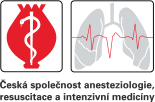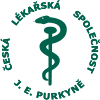Anest. intenziv. Med. 2007;18(4):221-226
Notes on the pathophysiology of postoperative deliriumAnaesthesiology - Comprehensive Report
- Centrum kardiovaskulární a transplantační chirurgie, Brno
Postoperative delirium represents a serious complication after major surgery. Patients suffer from anxiety, hallucinations and delusions and have higher postoperative morbidity and mortality. A long-term cognitive impairment is its common consequence. Delirium thus represents a nursing, therapeutic as well as economic problem. In this review article the basic characteristics and incidence of postoperative delirium are summarized, and hypotheses of its development published so far are presented.
Keywords: postoperative delirium; hallucination; cognitive impairment
Published: August 1, 2007 Show citation
References
- Bucerius, J., Gummert, J. F. Predictors of delirium after cardiac surgery: effect of beating heart surgery. J. Thor. Cardio. Surgery, 2004, 127, p. 57-64.
 Go to original source...
Go to original source...  Go to PubMed...
Go to PubMed... - Franco, K., Litaker, D. The cost of delirium in the surgical patient. Psychosomatics, 2001, 42, p. 68-73.
 Go to original source...
Go to original source...  Go to PubMed...
Go to PubMed... - McKhann, G. M., Grega, M. A. Encephalopathy and stroke after coronary artery bypass grafting. Arch. Neurol., 2002, 59, p. 1422-1428.
 Go to original source...
Go to original source...  Go to PubMed...
Go to PubMed... - O'Keefe, S. T., Chonchubhair, A. N. Postoperative delirium in the elderly. Br. J. Anaesth., 1994, 73, p. 673-687.
 Go to original source...
Go to original source...  Go to PubMed...
Go to PubMed... - Abildstrom, H., Rasmussen, L. S. Cognitive dysfunction 1-2 years after non-cardiac surgery in the elderly (ISPOCD group). Acta Anaesth. Scan., 2000, 44, 10, p. 1246-1251.
 Go to original source...
Go to original source...  Go to PubMed...
Go to PubMed... - van der Mast, R., Roest, F. H. J. Delirium after cardiac surgery: a critical review. J. Psychosom. Research, 1996, 41, 1, p. 13-30.
 Go to original source...
Go to original source...  Go to PubMed...
Go to PubMed... - Dyer, C. B., Ashton, C. M. Postoperative delirium - a review of 80 primary data-collection studies. Arch. Intern. Med., 1995,155, p. 461-466.
 Go to original source...
Go to original source...  Go to PubMed...
Go to PubMed... - Milstein, A., Pollack, A. Confusion/delirium following catarct surgery. Internat. Psychogeriatr., 2002, 14, 3, p. 301-306.
 Go to original source...
Go to original source...  Go to PubMed...
Go to PubMed... - Liptzin, B., Levkoff, S. E. An empirical study of delirium subtypes. Br. J. Psych., 1992, 161, p. 843-845.
 Go to original source...
Go to original source...  Go to PubMed...
Go to PubMed... - Karlsson, I. Drugs that induce delirium. Dement. Geriatr. Cognit. Dis., 1999, 10, p. 412-415.
 Go to original source...
Go to original source...  Go to PubMed...
Go to PubMed... - Marcantonio, E. R., Juarez, G. The relationship of postoperative delirium with psychoactive medications. JAMA, 1994, 272, p. 1518-1522.
 Go to original source...
Go to original source... - Böhner, H., Hummel, T. C. Predicting delirium after vascular surgery. Ann. Surg., 2003, 238, p. 149-156.
 Go to original source...
Go to original source...  Go to PubMed...
Go to PubMed... - Yoshimura, Y., Kubo, S. Risk factors for postoperative delirium after liver resection for hepatocellular carcinoma. World Journal of Surgery, 2004, 28, p. 982-986.
 Go to original source...
Go to original source...  Go to PubMed...
Go to PubMed... - Yoon, B. W., Bae, H. J. Intracranial cerebral artery disease as a risk factor for central nervous system complications of coronary artery bypass graft surgery. Stroke, 2001, 32, p. 94-99.
 Go to original source...
Go to original source...  Go to PubMed...
Go to PubMed... - Rudolph, J. L., Babikian, V. L. Atherosclerosisis associated with delirium after coronary artery pypass graft surgery. J. Am. Geriatr. Society, 2005, 53, p. 462-466.
 Go to original source...
Go to original source...  Go to PubMed...
Go to PubMed... - Rolfson, D. B., McElhaney, J. E. Incidence and risk factors for delirium and other adverse outcomes in older adults after coronary artery bypass graft surgery. Can. J. Cardio., 1999, 15, 7, p. 771-776.
- Croughwell, N. D., Newman, M. F. Jugular bulb saturation and cognitive dysfunction after cardiopulmonary bypass. Ann. Thor. Surgery, 1994, 58, 6, p. 1702-1708.
 Go to original source...
Go to original source...  Go to PubMed...
Go to PubMed... - Kadoi, Y., Saito, S. Decrease in jugular venous oxygen saturation during normothermic cardiopulmonary bypass predicts short-term postoperative neurologic dysfunction in elderly patients. J. Am. College Cardio., 2001, 38, 5, p. 1450-1455.
 Go to original source...
Go to original source...  Go to PubMed...
Go to PubMed... - Clark, R. E. Brillman, J. Microemboli during coronary artery bypass grafting. Genesis and effect on outcome. J. Thor. Cardiovasc. Surgery, 1995, 109, 2, p. 249-257.
 Go to original source...
Go to original source...  Go to PubMed...
Go to PubMed... - Gokgoz, L., Gunaydin, S. Psychiatric complications of cardiac surgery. Scan. Cardiovasc. J., 1997, 31, p. 217-222.
 Go to original source...
Go to original source...  Go to PubMed...
Go to PubMed... - Hall, R. A., Fordyce, D. J. Brain SPECT imaging and neuropsychological testing in coronary artery bypass patients. Ann. Thor. Surgery, 1999, 68, p. 2082-2088.
 Go to original source...
Go to original source...  Go to PubMed...
Go to PubMed... - Marcantonio, E. R., Goldman, L. The association of intraoperative factors with the developement of postoperative delirium. Am. J. Med., 1998, 105, 5, p. 380-384.
 Go to original source...
Go to original source...  Go to PubMed...
Go to PubMed... - Schneider, F., Böhner, H. Risk factors for postoperative delirium in vascular surgery. Gen. Hospit. Psychiatry, 2002, 24, p. 28-34.
 Go to original source...
Go to original source...  Go to PubMed...
Go to PubMed... - Wahlund, L. O., Björlin, G. A. Delirium in clinical practice: experiences from a specialized delirium ward. Dement. Geriat. Cognitive Dis., 1999, 10, p. 389-392.
 Go to original source...
Go to original source...  Go to PubMed...
Go to PubMed... - Scott, R. B., Mitchell, M. C. Aging, alcohol and the liver. J. Am. Geriatr. Society, 1988, 36, p. 255-265.
 Go to original source...
Go to original source...  Go to PubMed...
Go to PubMed... - Bitsch, M. S., Foss, N. B. Pathogenesis of and management strategies for postoperative delirium after hip fracture: a review. Acta Orthoped. Scand., 2004, 75, 4, p. 378-389.
 Go to original source...
Go to original source... - Carpenter, W. T., Gruen, P. H. Cortisol's effects on human mental functioning. J. Clin. Psychophyrmacology, 1982, 2, 2, p. 91-101.
 Go to original source...
Go to original source... - Olsson, T. Activity in the hypothalamic-pituitary-adrenal axis and delirium. Dement. Geriat. Cognitive Dis., 1999, 10, p. 345-349.
 Go to original source...
Go to original source...  Go to PubMed...
Go to PubMed... - McIntosh, T. K., Bush, H. L. Beta-endorphin, cortisol and postoperative delirium: a preliminary report. Psychoneuroendocrinology, 1985, 10, 3, p. 303-313.
 Go to original source...
Go to original source...  Go to PubMed...
Go to PubMed... - Kaneko, T., Takahashi, S. Postoperative delirium following gastrointestinal surgery in elderly patients. Japan. J. Surgery, 1997, 27, p. 107-111.
 Go to original source...
Go to original source...  Go to PubMed...
Go to PubMed... - Herrmann, M., Ebert, A. D. A contrastive analysis of release patterns of biochemical markers of brain damage after coronary artery bypass grafting and valve replacement and their association with the neurobehavioral outcome after cardiac surgery. Europ. J. Cardiothoracic Surgery, 1999, 16, 5, p. 513-518.
 Go to original source...
Go to original source...  Go to PubMed...
Go to PubMed... - Herrmann, M., Ebert, A. D. Neurobehavioral outcome prediction after cardiac surgery: role of neurobiochemical markers of damage to neuronal and glial brain tissue. Stroke, 2000, 31, 3, p. 645-650.
 Go to original source...
Go to original source...  Go to PubMed...
Go to PubMed... - Rasmussen, L. S., Christiansen, M. Do blood concentrations of neuron specific enolase and S-100 beta protein reflect cognitive dysfunction after abdominal surgery? ISPOCD Group. Br. J. Anaesth., 2000, 84, 2, p. 242-244.
 Go to original source...
Go to original source...  Go to PubMed...
Go to PubMed... - Schmidt, R., Fazekas, F. Brain magnetic resonance imaging in coronary artery bypass grafts: a pre- and postoperative assessment. Neurology, 1993, 43, p. 775-778.
 Go to original source...
Go to original source...  Go to PubMed...
Go to PubMed... - Edmonds, H. L., Griffiths, L. K. Quantitative electroencephalographic monitoring during myocardial revascularisation predicts postoperative disorientation and improves outcome. J. Thor. Cardiovasc. Surgery, 1992, 103, p. 555-563.
 Go to original source...
Go to original source... - Nollert, G., Mohnle, P. Postoperative neuropsychological dysfunction and cerebral oxygenation during cardiac surgery. Thor. Cardiovasc. Surgery, 1995, 43, 5, p. 260-264.
 Go to original source...
Go to original source...  Go to PubMed...
Go to PubMed... - van der Mast, R. C., van den Broek, W. W. Is delirium after cardiac surgery related to plasma amino acids and physical condition? J. Neuropsychiat. Clin. Neurosciences, 2000, 12, p. 57-63.
 Go to original source...
Go to original source...  Go to PubMed...
Go to PubMed... - Trzepacz, P. T. Update on the neuropathogenesis of delirium. Dement. Geriat. Cognitive Dis., 1999, 10, p. 330-334.
 Go to original source...
Go to original source...  Go to PubMed...
Go to PubMed... - Tune, L. E., Egeli, S. Acetylcholine and delirium. Dement. Geriat. Cognitive Dis., 1999, 10, p. 342-344.
 Go to original source...
Go to original source...  Go to PubMed...
Go to PubMed... - Eikelenboom, P., Hoogendijk, W. J. Do delirium and Alzheimer's dementia share specific pathogenetic mechanisms? Dement. Geriat. Cognitive Dis., 1999, 10, p. 319-324.
 Go to original source...
Go to original source...  Go to PubMed...
Go to PubMed... - Blass, J. P., Gibson, G. E. Cerebrometabolic aspects of delirium in relationship to dementia. Dement. Geriat. Cognitive Dis., 1999, 10, p. 335-338.
 Go to original source...
Go to original source...  Go to PubMed...
Go to PubMed... - Aizawa, K., Kanai, T. A novel approach to the prevention of postoperative delirium in the elderly after gastrointestinal surgery. Surgery today, 2002, 32, p. 310-314.
 Go to original source...
Go to original source...  Go to PubMed...
Go to PubMed... - Hanania, M., Kitain, M. Melatonin for treatment and prevention of postoperative delirium. Anesth. Analg., 2002, 94, p. 338-339.
 Go to original source...
Go to original source...  Go to PubMed...
Go to PubMed... - Kunihara, T., Shiiya, N. Arterio-jugular differences in serum S-100beta proteins in patients receiving selective cerebral perfusion. Surgery today, 2006, 36, 1, p. 6-11.
 Go to original source...
Go to original source...  Go to PubMed...
Go to PubMed... - Laffey, J. G., Boylan, J. F., Cheng, D. C. H. The systemic inflammatory response to cardiac surgery - implications for the anesthesiologist. Anesthesiology, 2002, 97, p. 215-252.
 Go to original source...
Go to original source...  Go to PubMed...
Go to PubMed... - Bogatcheva, N. V., Sergeeva, M. G. Arachidonic acid cascade in endothelial pathobiology. Microvascular Research, 2005, 69, p. 107-127.
 Go to original source...
Go to original source...  Go to PubMed...
Go to PubMed... - Kanwar, S., Kubes, P. Nitric oxide is an antiadhesive molecule for leukocytes. New Horizons, 1995, 3, p. 93-104.
- Basu, A., Lazovic, J. Interleukin-1 and the interleukin-1 type 1 receptor are essential for the progressive neurodegeneration that ensues subsequent to a mild hypoxic/ischemic injury. J. Cerebral Blood flow Metab., 2005, 25, 1, p. 17-29.
 Go to original source...
Go to original source...  Go to PubMed...
Go to PubMed... - Zhou, H. F., Liu, X. Y. Triptolide protects dopaminergic neurons from inflammation-mediated damage induced by lipopolysaccharide intranigral injection. Neurobiology of disease, 2005, 18, 3, p. 441-449.
 Go to original source...
Go to original source...  Go to PubMed...
Go to PubMed... - Hirsch, J. A., Gibson, G. E. Selective alteration of neurotransmitter release by low oxygen in vitro. Neurochemical Research, 1984, 9, 8, p. 1039-1049.
 Go to original source...
Go to original source...  Go to PubMed...
Go to PubMed... - Menger, M. D., Rücker, M. Capillary dysfunction in striated muscle ischemia/reperfusion: on the mechanisms of capillary "no-reflow". Shock, 1997, 8, 1, p. 2-7.
 Go to original source...
Go to original source...  Go to PubMed...
Go to PubMed...





